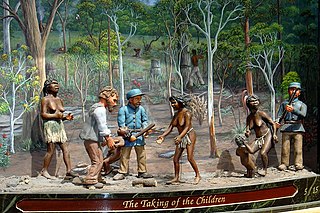
The Stolen Generations were the children of Australian Aboriginal and Torres Strait Islander descent who were removed from their families by the Australian Federal and State government agencies and church missions, under acts of their respective parliaments. The removals of those referred to as "half-caste" children were conducted in the period between approximately 1905 and 1967, although in some places mixed-race children were still being taken into the 1970s.

The Noongar are Aboriginal Australian peoples who live in the south-west corner of Western Australia, from Geraldton on the west coast to Esperance on the south coast. Noongar country is the land occupied by 14 different groups: Amangu, Ballardong, Yued, Kaneang, Koreng, Mineng, Njakinjaki, Njunga, Pibelmen, Pindjarup, Wardandi, Whadjuk, Wiilman and Wudjari.
Keith Windschuttle is an Australian writer, historian, and former ABC board member.
Australian literature is the written or literary work produced in the area or by the people of the Commonwealth of Australia and its preceding colonies. During its early Western history, Australia was a collection of British colonies, therefore, its recognised literary tradition begins with and is linked to the broader tradition of English literature. However, the narrative art of Australian writers has, since 1788, introduced the character of a new continent into literature—exploring such themes as Aboriginality, mateship, egalitarianism, democracy, national identity, migration, Australia's unique location and geography, the complexities of urban living, and "the beauty and the terror" of life in the Australian bush.
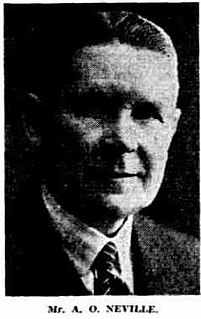
Auber Octavius Neville was a British-Australian public servant, notably Chief Protector of Aborigines, in Western Australia.
National Sorry Day, or the National Day of Healing, is an annual event that has been held in Australia on 26 May since 1998, to remember and commemorate the mistreatment of the country's Indigenous peoples. During the 20th century, Australian government policies caused children to be separated from their families, with the intention of assimilating them into White Australian culture. This resulted in what became known as the "Stolen Generations", with the effects of these traumatic removals being felt by succeeding generations even today.
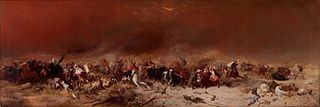
The history wars in Australia are an ongoing public debate over the interpretation of the history of the British colonisation of Australia and development of contemporary Australian society.
Paddy Japaljarri Stewart was an Australian Aboriginal artist from Mungapunju, south of Yuendumu. He was chairman of the Warlukurlangu Artists Committee. Stewart was one of the artists who contributed to the Honey Ant Dreaming mural on the Papunya school wall in 1971 - the very genesis of the modern Aboriginal art movement.

Ruby Charlotte Margaret Hunter was an Aboriginal Australian singer, songwriter and guitarist. She was a Ngarrindjeri woman, who often performed with her partner, Archie Roach AM, whom she met at the age of 16, while both were homeless teenagers. Born near the mouth of the Murray River in the Coorong region of South Australia, Hunter was forcibly taken from her family at the age of eight as part of the Stolen Generation.
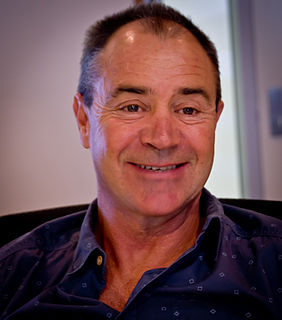
Kim Scott is an Australian novelist of Aboriginal Australian ancestry. He is a descendant of the Noongar people of Western Australia.
The Western Australian Premier's Book Awards (PBA) is an award for books, scripts, digital narrative and a People's Choice. Awards are provided by the Government of Western Australia, and the awards process is managed by the State Library of Western Australia. Awards are given in fiction, poetry, non-fiction, Western Australian History, children's book, writing for Young Adults, scripts and digital narrative. An overall winner is awarded the Premier's Prize.

The Moore River Native Settlement was the name of the now defunct Aboriginal settlement and internment camp located 135 kilometres (84 mi) north of Perth and 11 kilometres (6.8 mi) west of Mogumber in Western Australia, near the headwaters of the Moore River.
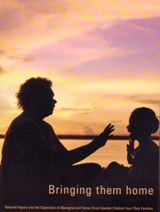
Bringing Them Home is the 1997 Australian Report of the National Inquiry into the Separation of Aboriginal and Torres Strait Islander Children from Their Families. The report marked a pivotal moment in the controversy that has come to be known as the Stolen Generations.
Indigenous Australians are people who are descended from groups that lived in Australia and surrounding islands before British colonisation. They include the Aboriginal and Torres Strait Islander peoples of Australia. The term Aboriginal and Torres Strait Islander people is preferred by many; First Nations of Australia, First Peoples of Australia and First Australians are also increasingly common terms.

Half-Caste Act was the common name given to Acts of Parliament passed in Victoria and Western Australia in 1886. They became the model for legislation to control Aboriginal people throughout Australia, such as the Aboriginals Protection and Restriction of the Sale of Opium Act 1897 in Queensland.
Kinchela is a village in the Mid North Coast region of New South Wales, Australia, on land traditionally owned by the Dungutti people. It is best known as the location of the infamous Kinchela Boys Home. The village is named after Kinchela Creek, which in turn may have been named after John Kinchela, Attorney General of New South Wales who arrived at Sydney in 1831. The Kinchela Aboriginal Reserve was gazetted in 1883, Kinchela was gazetted as a village in 1885 or 1886, and in 1892 an Aboriginal school was established at Pelican Island, near Kinchela.

On 13 February 2008, the Parliament of Australia issued a formal apology to Indigenous Australians for forced removals of Australian Indigenous children from their families by Australian federal and state government agencies. The apology was delivered by Prime Minister Kevin Rudd.
Angela (0702230847) is a young adult novel written by Australian author James Moloney and first published in 1998 by University of Queensland Press. By 2013 the National Library of Australia listed 19 editions of the novel in a variety of formats including book, audio book, braille and e-book. It is the third book in the Gracey trilogy, the first being Dougy (1993) and the second Gracey (1994) It won an Honourable Mention in the UNESCO Prize for Children's Literature in the Service of Tolerance and Peace. It is also part of Kerry White collection of Australian children's books.

Grace Beside Me is an Australian fantasy drama television series for children which premiered on NITV on 16 February 2018 and later aired on ABC Me. The series is based on the novel Grace Beside Me, by Sue McPherson, and was filmed in the Scenic Rim Region in South East Queensland. The television adaptation was produced by a team composed entirely of women, including Aboriginal screenwriters.











